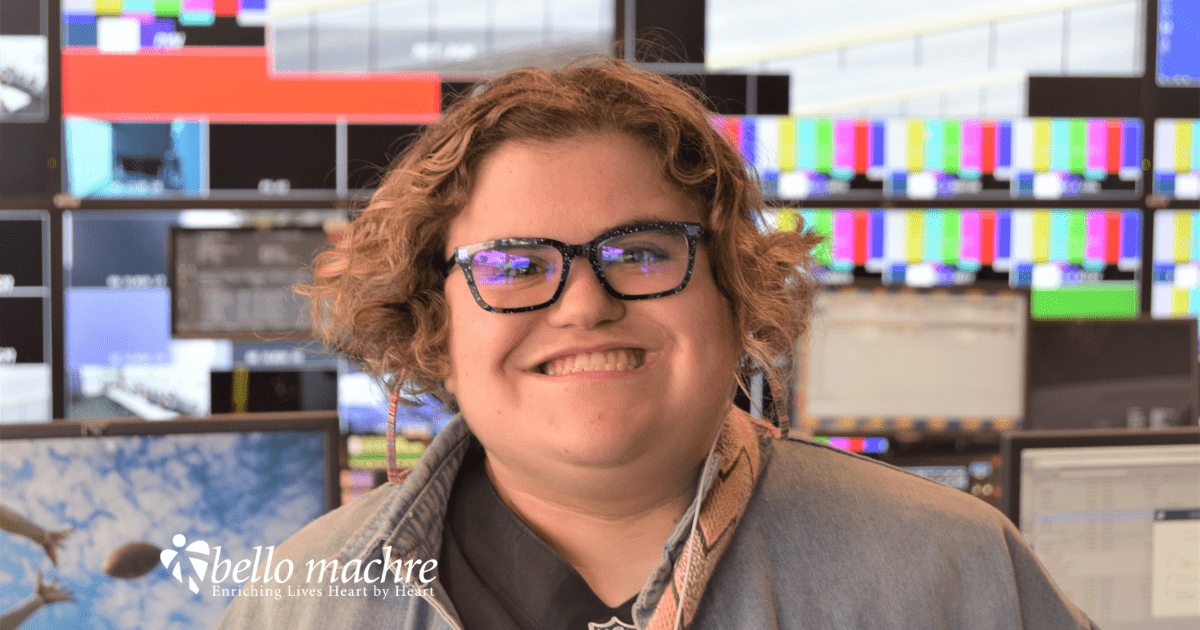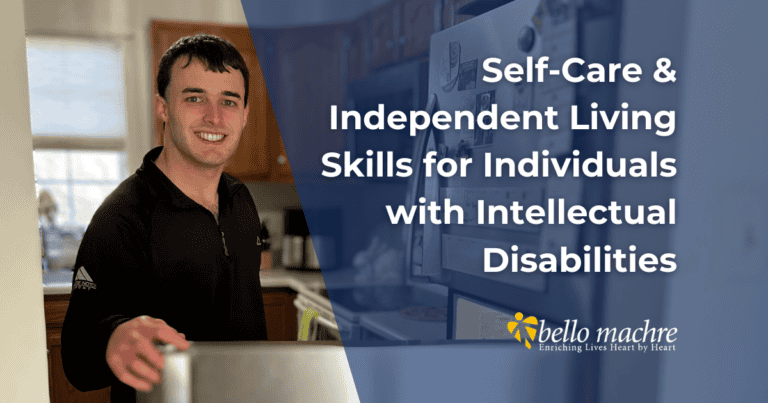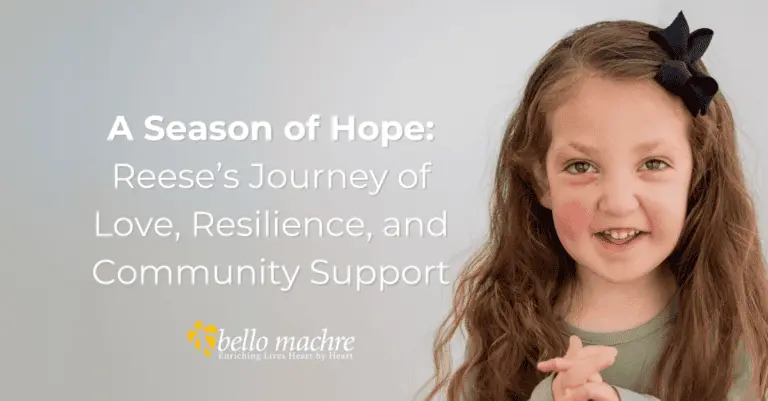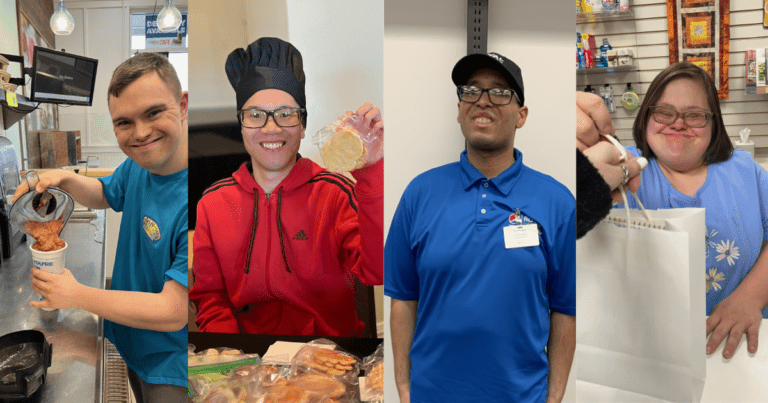The Transition to Adulthood for Youth with Developmental Disabilities in Maryland
A guide for families and individuals to successfully transition from an education-based support system to adult services provided for those 21 and older.

What you will learn in this guide
Learn how Maryland families can plan the transition from school services under IDEA to adult disability supports, including DDA services, timelines, and next steps.
- How schools support transition planning in Maryland
- When IDEA services end and adult services begin at age 21
- How the Maryland DDA supports adults
- How families avoid gaps when transitioning to adult services
Understanding the transition to adult disability services in Maryland
After the school years, individuals and families of youth with developmental and intellectual disabilities in Maryland must find adult disability programs and transition services to help ease the move into adulthood. This is often a stressful time for both the individuals and their family. Preparation and an understanding of how the support system in Maryland changes will ease the burden.
In Maryland, youth with developmental disabilities receive services through the Individuals with Disabilities Education Act (IDEA), which guarantees a Free Appropriate Public Education (FAPE) through age 21. These school-based supports focus on education, skill development, and preparation for life after graduation. As individuals approach adulthood, families must begin preparing for the shift from IDEA services to adult-based programs designed to support independence, employment, and community participation.
A mindset shift for families of youth with special needs
Adults with developmental disabilities are eligible for numerous federal, state, and community-based services. These include residential services, community development services, employment support, and more. The biggest mindset shift for many families during the transition to adult services is moving from education-based goals to a broader perspective centered on fostering independence. Embracing a person-centered approach that values the individual’s goals and preferences is essential.
The importance of early intervention
The transition to adulthood for youth with disabilities in Maryland can be overwhelming due to the abrupt change in services at age 21. Waiting until the last year of high school to begin looking into adult services makes an already challenging process that much more daunting. Early intervention and support for families are key to ensuring a smooth transition.
Transition Planning Timeline in Maryland
- Age 14–15: Begin exploring career interests and independent living skills
- Age 16: Schools are required to initiate formal transition planning under IDEA
- Age 18–20: Apply for Maryland DDA eligibility and begin researching adult service providers
- Age 21: School-based IDEA services end and adult disability services begin
The role of schools in transition planning for developmentally disabled youth
High schools, community colleges, and other post-secondary programs play an essential role in providing transition planning services for youth with intellectual and developmental disabilities. Under IDEA, schools are required to start transition planning for students with disabilities by the age of 16. This includes preparing for life after high school, including post-secondary educational options, employment, and independent living skills.
In Maryland, some high schools are doing an exemplary job of connecting families with the right information. They host events such as transition fairs to help high school students and their families connect with service providers and post-secondary programs. Unfortunately, these fairs are typically marketed more directly to individuals who will be graduating in the spring. Schools, families, and service providers should work together to start those discussions well before age 21.
Transition Connections Academy, a program out of Carroll County Public Schools in Maryland, offers valuable resources for young adults with developmental disabilities, with the goal of ensuring post-school success in the areas of independent living, community engagement, and employment. The program was designed in collaboration with community partners such as community colleges, local healthcare and rehabilitation services providers, local businesses, and local government and law enforcement agencies. Such formalized school transition support is required to ensure individuals with developmental disabilities and their families do not feel as though they are falling off a “services cliff” during this time.
Securing adult disability services
A significant difference between adult and educational services is the wide array Maryland DDA services and programs, including home-based services, community-based programs, center-based services, and more. When researching adult service providers, you will interview each other to find the customized program that is a great match for your loved one. Ensuring the program meets your loved one’s needs and goals is essential. While this process is more time-consuming than with school support, rest assured you’ll find a customized program that will be a great fit.
Start with the Maryland DDA
The Developmental Disability Administration (DDA) serves as a coordinated service delivery system for people with developmental disabilities in Maryland. Begin by completing the Maryland DDA eligibility application. If approved, a Coordinator of Community Services (CCS) will be assigned to serve as your advocate, helping you and your loved one navigate all the services and programs available to them.
The CCS assists in applying for community-based services and supports through Medicaid waivers. For example, people between ages 3 and 21 are eligible for the Family Supports Waiver, which unlocks services such as personal supports, behavioral support, assistive technology, housing support and caregiver training. Those over 21 who have graduated from school are eligible for the Community Supports and Community Pathways waivers for adult services.
The DDA recommends families apply for these waivers the spring before their loved one graduates to ensure they have no gap in services. Families should work closely with the CCS to research programs, advocate for their loved one with a developmental disability, and create a comprehensive care plan.
For example, Bello Machre offers community-based day programs, group homes, and employment services for adults with intellectual and developmental disabilities. These include job development and career coaching so your loved one with a disability can thrive in a career that aligns with their passions and interests.
Consider paid employment and internships
The Maryland Division of Rehabilitation Services (DORS) partners with adult transition programs and employers to help youth with disabilities prepare for meaningful employment and internships. Starting at age 14, teens with developmental and intellectual disabilities are eligible for:
- Job exploration counseling
- Instruction in self-advocacy
- Counseling on post-secondary education opportunities
- Workplace readiness training
- Work-based learning experiences
- Disability-related skills training
- Job search and job placement services
- Job coaching and supported employment services
- Assistive technology solutions for disability-related needs
Career counseling, support with resume development and interviewing, and on-the-job coaching give teens and young adults a great foundation for joining the workforce.
Learn More About Bello Machre’s Disability Services
The importance of continuity when youth transition to adult disability services
Families in Maryland often worry about the abrupt change in disability services and benefits that come with turning 21. Continuity is crucial to a successful transition process; the more the new phase matches the past 21 years of an individual’s life, the smoother the transition will be. The family of a loved one with an intellectual disability can help serve as a bridge and advocate to make sure future services are informed by the success of those that were provided before the individual turned 21.
Transitioning from a structured, education-based classroom setting to community-based, person-centered adult services is a major change. This is made harder if the individual’s routine has been disrupted and they are in a new environment, with new people, and being asked how they want their day structured. Schools and service providers are instrumental in helping families and individuals navigate this time by teaching self-advocacy and empowering them to voice their wants and needs.
Support networks, mentorship, and advocacy
Support networks, mentorship, and advocacy are essential throughout this process. Connect with people who have been through the transition to adulthood, including other individuals and families, educators and service providers, and local advocacy organizations. Seek out a mentor who has been through the transition and can help support you through the process. Advocacy skills, the ability to be a strong advocate without being overbearing, are essential in ensuring that your loved one receives the services they need.
In addition to transition fairs, providers also can offer informational sessions where families can ask questions and learn from adults already receiving services.
An opportunity for a rich, full life
The transition to adult disability services is a significant life event for people with developmental disabilities and their families. It involves careful planning, collaboration between schools and service providers, securing services through the Maryland DDA, and selecting the right options to match your loved one’s unique wants and needs. Early intervention and family support are essential for ensuring a positive transition.
Recognize that the transition can be positive and lead to a more customized and fulfilling life for individuals, allowing them to thrive and find their place in the world as adults. With the right information, preparation, and support, the transition can position people with intellectual and developmental disabilities to thrive.
Reach out to Bello Machre for support
No matter where you are in the transition journey, Bello Machre can help. For more than 50 years, we have offered children & teens, adults and seniors with developmental disabilities the services, opportunities, and support they need to live full, independent, rich lives. Reach out to us if you’re in need of transition to adulthood support.
Learn More About Bello Machre’s Disability Services
Helping individuals with developmental disabilities thrive
-
Building Self-Care & Independent Living Skills for Adults with Intellectual Disabilities
Independent living skills are crucial for people with intellectual and developmental disabilities to live full, independent, and rich lives. Such skills lead to better physical and mental health, stronger relationships, and more community involvement.
-
Reese’s Journey: Challenges, Courage & Ray of Hope Program
A Season of Hope: Reese’s Journey of Love, Resilience, and Community Support
-
What is National Disability Employment Awareness Month?
National Disability Employment Awareness Month (NDEAM), observed each October, marks an opportunity to celebrate the contributions of workers with disabilities to America’s workplaces and economy. During NDEAM, we confirm our commitment to ensuring workers with disabilities have access to good jobs all year round.



